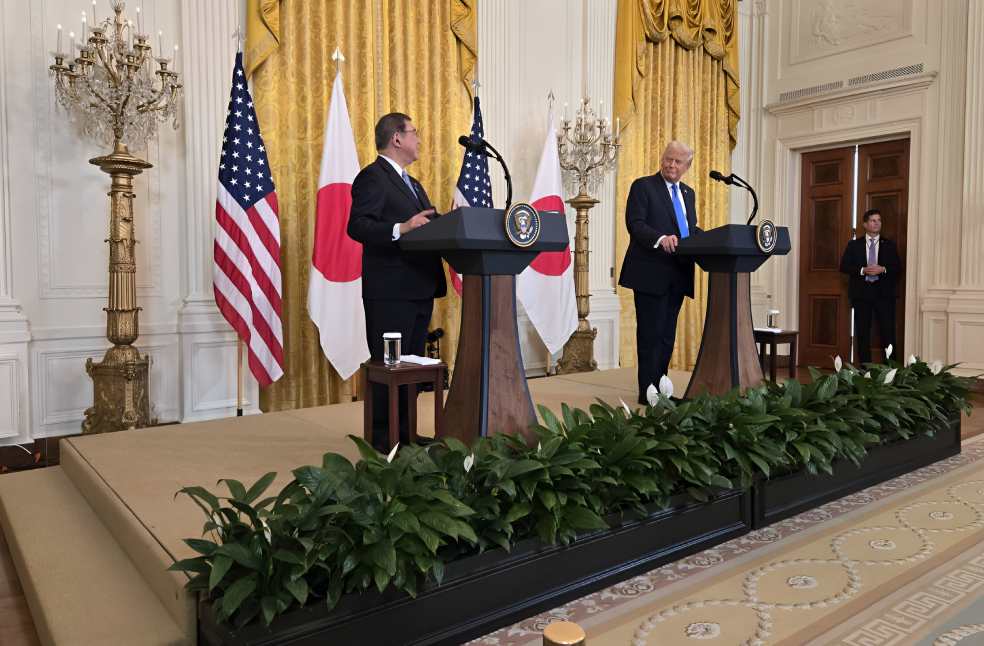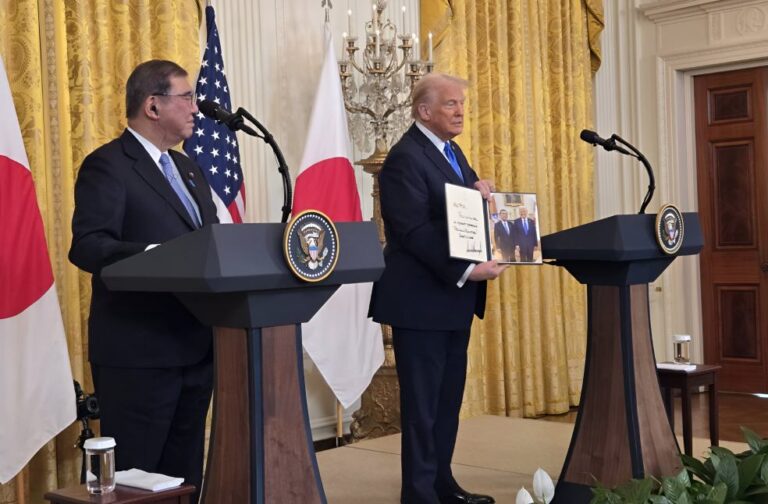Washington, D.C.: Japanese Prime Minister Shigeru Ishiba and U.S. President Donald Trump have set a friendly tone during their first meeting at the White House, with Tokyo driving to sidestep the tariffs Trump has imposed on other allies—at least for now.
During a joint press conference, the leaders emphasised unity against Chinese “aggression” and announced a breakthrough on a blocked deal affecting U.S. Steel. Trump confirmed that Japan’s Nippon Steel would fund U.S. Steel but would not move with a full acquisition after the deal was previously suspended by former President Joe Biden.
While praising Ishiba’s leadership, Trump pushed Japan to eliminate the U.S. trade deficit and cautioned that Tokyo could still face tariffs if it fails to do so. Ishiba, known for his reserved demeanour and love of model warships, abstained from committing to any specific trade concessions, instead emphasising Japan’s status as the largest investor in the U.S.
Ishiba’s visit comes with pressure to replicate Trump’s past camaraderie with former Prime Minister Shinzo Abe. The two leaders exchanged formalities, with Trump complimenting Ishiba’s appearance and Ishiba playfully acknowledging Trump’s formidable television persona.
Beyond optics, discussions concentrated on deepening security and trade ties. Both leaders reaffirmed their dedication to countering Beijing’s “provocative activities” in the South China Sea and pledged support for a denuclearised North Korea. Trump, who met Kim Jong Un during his first term, expressed interest in maintaining dialogue with Pyongyang.

Behind Trump’s reassurances lay Japan’s commitment to invest $1 trillion in the U.S. and increase purchases of American defence equipment. Ishiba emphasised Japan’s long-standing economic contributions and vowed to intensify bilateral trade relations.
Ishiba’s trip to Washington is seen as a strategic effort to temper Trump’s hardline trade policies. Under Abe’s leadership, Japan had largely avoided the brunt of Trump’s aggressive tariffs and financial markets on allies. With the U.S. president now targeting China, Mexico, Canada, and the European Union with new tariffs, Tokyo remains cautious about its future standing.
Trump has hinted at announcing additional “reciprocal tariffs” next week, raising concerns about potential trade friction. For now, Japan has secured a reprieve, but whether Ishiba can maintain this economic diplomacy remains to be seen.



